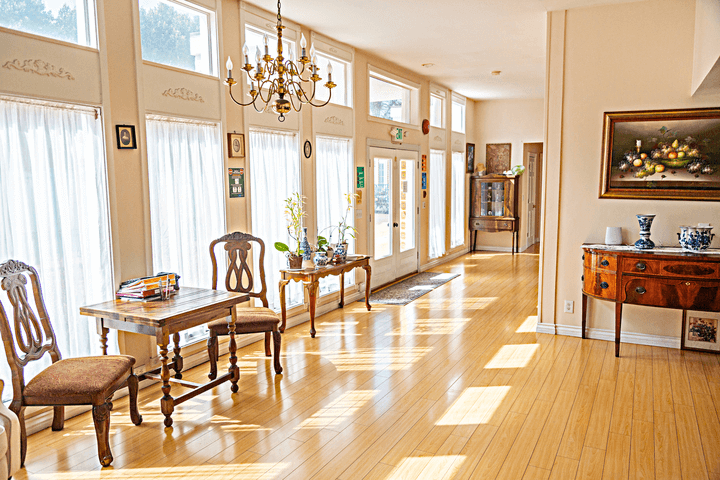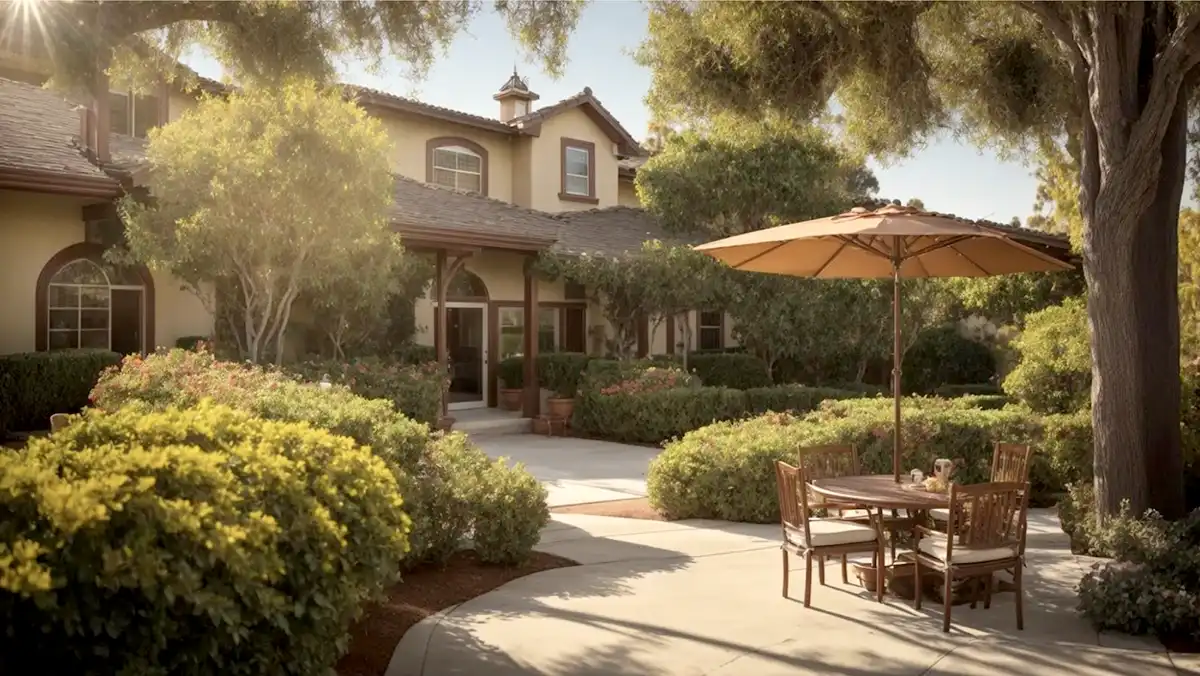When a loved one with dementia begins exhibiting aggressive behaviors, finding appropriate care homes for aggressive dementia patients in Tarzana becomes critically important for both their safety and wellbeing. Behavioral symptoms are common in dementia patients, making specialized care environments essential. Research from BMC Geriatrics shows that small-scale, homelike facilities improve quality of life and social participation for residents compared to conventional nursing homes. Studies demonstrate that family caregivers and staff report positive experiences with personal attention provided in small-scale living facilities, especially the emphasis on autonomy in daily life. The National Institute on Aging confirms that specialized dementia care facilities provide better outcomes for residents when staff focus on individualized approaches.

Understanding Triggers and Root Causes
Aggressive behavior in dementia patients rarely occurs without cause. These episodes stem from frustration, fear, confusion, or physical discomfort that residents cannot effectively communicate. For families in Tarzana, Burbank, and Thousand Oaks, recognizing underlying triggers is essential when selecting appropriate care facilities.
Common triggers include overstimulation from noise, changes in routine, unfamiliar environments, physical pain, medication side effects, or basic unmet needs like hunger or fatigue. Professional caregivers understand that aggression often signals something is wrong rather than representing intentional hostility.
When families from Thousand Oaks have transitioned loved ones to specialized nursing homes for aggressive dementia patients in Tarzana, they often discover that identifying and addressing these triggers significantly reduces behavioral incidents.
What Sets Specialized Facilities Apart
Not all memory care facilities can effectively handle aggressive dementia patients. True specialization requires specific environmental design, experienced staff, and individualized approaches that go beyond standard dementia care.
Specialized care homes for aggressive dementia patients in Tarzana feature secure but welcoming environments that feel like home rather than institutions. Small settings with only a few residents allow staff to provide personalized attention and develop meaningful relationships with each person.
The home-like atmosphere proves particularly valuable for aggressive dementia patients who become more agitated in clinical, sterile settings. Familiar furnishings, comfortable spaces, and peaceful outdoor areas create calming environments that naturally reduce behavioral incidents.
The Luxury of , Small, Personal Settings

Senior man assisted by a nurse in a luxury senior assisted living facility in Calabasas
Quality care for aggressive dementia patients depends on having adequate staff who can provide individual attention around the clock. Large facilities often struggle to give each resident the personal care needed to prevent behavioral episodes.
In small board and care homes, caregivers learn each resident’s specific triggers, preferences, and effective calming techniques. This personal knowledge enables prevention of many aggressive episodes before they occur. Staff can recognize when someone feels uncomfortable, needs assistance, or shows early signs of agitation.
Sophia’s family-owned approach at Royal Garden Board & Care ensures personal oversight and consistency in care approaches. With over 20 years of experience in elderly care, she personally oversees resident care protocols, providing the level of owner involvement that larger facilities cannot match.
Environmental Design That Calms

The physical environment significantly impacts dementia patients’ behavior. Effective care homes for aggressive dementia patients in Tarzana prioritize creating spaces that naturally promote calm while ensuring safety.
Home-like settings with comfortable furniture, family photographs, and familiar décor help residents feel secure. Unlike institutional facilities with long corridors and clinical appearance, quality board and care homes provide living rooms, dining areas, and bedrooms that feel welcoming.
Access to beautiful gardens, patios, or courtyards offers therapeutic value. Natural surroundings and fresh air often reduce agitation while providing safe spaces for residents to enjoy outdoors. Royal Garden’s bright, colorful environments with upscale amenities maintain comfort and familiarity that help reduce aggressive behaviors.
Individualized Care Approaches
Effective management of aggressive behaviors requires understanding each resident’s unique background, personality, and specific triggers. Person-centered care addresses individual needs rather than applying one-size-fits-all procedures.
Small facilities excel at this individualized attention because staff focus on just a few residents. Caregivers learn personal preferences—whether someone prefers morning or evening care, what foods they enjoy, which activities calm them, and what situations might cause distress.
Family collaboration proves essential in developing these personalized strategies. Relatives share valuable insights about their loved one’s history, successful techniques, and potential triggers, creating partnerships between families and professional caregivers. Sophia and her team, including daughter Rada with her MA in Psychology, work closely with families to understand each resident’s unique needs and develop effective care approaches.

Male care worker serving dinner to a senior man at his home
Recognizing When Professional Care Becomes Necessary
Certain indicators suggest that home care may no longer provide adequate safety for aggressive dementia patients. Professional placement becomes necessary when behaviors create risks for the individual or family caregivers.
Warning signs include situations where family members feel unsafe during personal care, aggressive episodes increase in frequency or severity, or caregivers become exhausted from round-the-clock management. Professional intervention may be required when essential activities like bathing or medication become battlegrounds.
Families in Tarzana, Burbank, and Thousand Oaks shouldn’t wait for crisis situations. Early placement in specialized care homes allows gradual adjustment while maintaining some familiar routines and relationships.

Close-up of woman holding senior’s hands leaning on cane
Key Questions for Evaluating Facilities
Experience and Approach:
- How long has the facility specifically cared for aggressive dementia patients?
- What experience does the owner have with challenging behaviors?
- What is the staff-to-resident ratio during different shifts?
- How do you handle behavioral incidents while maintaining dignity?
Environment and Philosophy:
- How does the home-like setting help reduce aggressive behaviors?
- What safety measures protect all residents during incidents?
- How do you balance structure with individual preferences?
- Can you provide references from families with similar experiences?
Family Partnership:
- How are families involved in care planning and updates?
- What communication can we expect about behavioral incidents?
- How often are approaches reviewed and modified?
- What support is available for family members?
Reputable facilities welcome detailed questions and provide honest answers about their capabilities and experience with aggressive dementia behaviors.
The Royal Garden Difference in Tarzana
At Royal Garden Board & Care, families throughout Tarzana, Burbank, and Thousand Oaks find solutions for loved ones with challenging behaviors. Sophia’s experience caring for elderly residents since 2000, combined with her personal involvement in daily operations, creates an environment where aggressive behaviors are understood and managed with compassion.
Our small Tarzana facilities, with only 6 residents each, ensure everyone receives individual attention from staff who know them personally. This intimate setting allows caregivers to recognize early warning signs and respond appropriately before behaviors escalate.
Combined with our team’s expertise—including Rada’s psychology background and Alex’s administrative support—we understand that aggressive behaviors often have manageable underlying causes. Our mission is to create an atmosphere we ourselves would want to live in, where residents feel part of a family rather than confined in an institution.
The home-like environments at our facilities create calming atmospheres that reduce anxiety and confusion common in institutional settings. This personal connection and consistent care approach often helps minimize behavioral challenges while preserving dignity and respect for each resident.

Making the Difficult Decision
The decision to place a loved one in specialized care homes for aggressive dementia patients represents one of the most challenging choices families face. However, professional care can often provide solutions that seemed impossible at home while protecting everyone’s safety.
Families should expect open communication about their loved one’s condition, regular updates on adjustment, and ongoing collaboration in care decisions. The goal is creating partnerships between family and professional caregivers that serve residents’ best interests while providing peace of mind.
Remember that seeking specialized care represents responsible decision-making, not failure. When aggressive behaviors threaten safety or exceed what families can manage, professional intervention becomes the loving choice that protects everyone involved.
Frequently Asked Questions
How long can someone with aggressive dementia stay at home?
Most families manage 2-4 years after diagnosis, but aggressive behaviors often shorten this timeline to months rather than years. When safety becomes a concern for anyone involved, professional care in specialized facilities provides structure and expertise that can reduce incidents while protecting everyone. Sophia’s experience shows that many behavioral challenges improve significantly in the right environment.
What makes memory care effective for aggressive patients?
24/7 supervision by experienced staff, secure yet welcoming environments, and personalized attention that large facilities cannot provide. Small settings allow caregivers to understand individual triggers and respond before behaviors escalate, often preventing incidents entirely. The home-like atmosphere at facilities like Royal Garden helps residents feel secure rather than confined.
When should families seek specialized care?
When aggressive behaviors create safety risks, family caregivers feel overwhelmed or unsafe, or essential daily activities become consistently difficult. Early placement typically produces better outcomes than waiting for emergencies. Professional assessment can help families determine if specialized placement would benefit their situation.
How do small facilities manage aggressive episodes?
Personal relationships between staff and residents often prevent many incidents through early recognition of triggers. When episodes occur, experienced caregivers like those trained under Sophia’s guidance provide calm, patient responses focused on safety while maintaining the person’s dignity. The small setting allows for immediate, individualized attention.
What should families expect during transition?
An adjustment period of several weeks as residents adapt to new routines. Many families find that consistent structure and personal attention help their loved one settle more quickly than expected. Sophia and her team maintain regular communication with families during this critical period, ensuring everyone feels supported.
How do costs compare to home care?
Board and care facilities in Tarzana, Burbank, and Thousand Oaks typically range from $4,000-$8,000 monthly. The comprehensive nature—including 24/7 supervision, meals, personal care, and behavioral management—often costs less than equivalent home care services while providing better safety and consistency.
What qualifications should providers have?
Look for experienced administrators with specific elderly care backgrounds, family-owned consistency rather than corporate turnover, and staff trained in understanding behavioral triggers. Sophia’s 20+ years of experience, combined with her family’s psychology expertise, provides the specialized knowledge needed for managing aggressive dementia behaviors effectively.
Can family relationships be maintained?
Absolutely. Professional care often improves family relationships by allowing relatives to focus on emotional connections rather than daily caregiving struggles. Regular visits, involvement in care decisions, and shared insights about preferences help maintain meaningful bonds while ensuring professional management of challenging behaviors.
Finding Hope and Solutions
While aggressive dementia behaviors challenge families throughout Tarzana, Burbank, and Thousand Oaks, specialized care homes offer realistic solutions for improved safety and quality of life. Success comes from finding facilities with experienced leadership like Sophia’s, who understand the importance of home-like environments, individual attention, and respectful care approaches.
Small, family-owned facilities often excel at providing personal relationships and consistent care that help reduce aggressive behaviors while preserving residents’ dignity and identity. Professional intervention under experienced guidance can provide solutions that seemed impossible at home while allowing families to return to loving relationships.
Don’t wait until situations become overwhelming. Early professional care often achieves better outcomes for everyone involved. Contact our experienced team to discuss how personalized, home-like care can help your family navigate this challenging time with the expertise and compassion you deserve.
Call (818) 609-8400 to speak with Sophia and our care specialists about practical solutions for your loved one’s specific needs.
